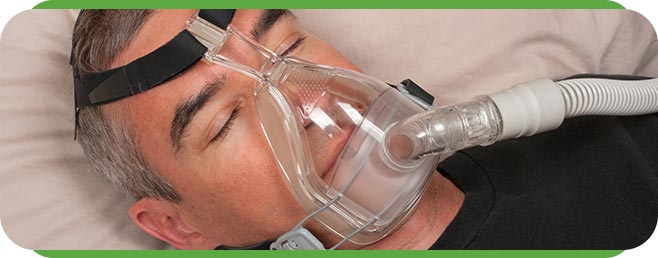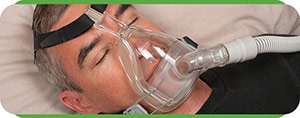The Impact of Mouth Breathing on Obstructive Sleep Apnea
Treating mouth breathing can significantly help reduce obstructive sleep apnea symptoms by promoting better airflow through the nasal passages and reducing the likelihood of airway collapsingse during sleep. This shift can lead to reduced snoring and an overall improvement in sleep quality. Treatment for obstructive sleep apnea is available at Koala® Center For Sleep & TMJ Disorders. For more information, please contact us today or book an appointment online now! We have convenient locations in Peoria/Dunlap IL, Bloomington IL, Wausau WI, and El Paso TX.




Table of Contents:
How is mouth breathing related to obstructive sleep apnea (OSA)?
What are the symptoms of obstructive sleep apnea related to mouth breathing?
Why do some people with obstructive sleep apnea breathe through their mouths?
Can treating mouth breathing help reduce obstructive sleep apnea symptoms?
Mouth breathing is often closely related to the onset of obstructive sleep apnea (OSA) because it can contribute to airway obstruction during sleep, exacerbating the condition. When an individual begins to breathe through their mouth instead of their nose, the airway may become more prone to collapse due to the lack of proper support that nasal breathing provides. The tongue as well as the soft tissues in the throat can fall back more easily when the mouth is open, leading to interrupted airflow and the characteristic pauses in breathing associated with OSA. Mouth breathing can also dry out the mouth and throat, increasing inflammation and further contributing to airway blockages. In cases of obstructive sleep apnea, mouth breathing is often a response to the body’s attempt to compensate for blocked nasal passages or other airway obstructions. However, this adaptation can create a cycle that worsens OSA symptoms. Nasal congestion, enlarged tonsils, or a deviated septum are common reasons people with OSA might resort to mouth breathing.
Symptoms of obstructive sleep apnea related to mouth breathing often include chronic dry mouth, waking up with a sore or irritated throat, and frequent nighttime awakenings due to a sensation of choking or gasping for air. Mouth breathing during sleep can also contribute to more pronounced snoring, as the open mouth allows the soft tissues of the throat to vibrate more intensely, creating louder snoring sounds. Additionally, individuals who breathe through their mouths may experience more significant daytime fatigue and headaches, as the disrupted airflow during sleep can lead to lower oxygen levels and poor sleep quality. Mouth breathing can lead to dental issues such as tooth decay and gum disease, as the lack of saliva increases the risk of bacterial growth. For those with obstructive sleep apnea, these symptoms may be compounded by the overall effects of interrupted sleep cycles, including difficulty concentrating, mood swings, and decreased cognitive function. Identifying mouth breathing as a symptom of OSA is essential for guiding appropriate treatment and improving overall health outcomes.
People with obstructive sleep apnea often breathe through their mouths due to nasal obstructions or other airway blockages that make nasal breathing difficult or impossible. Conditions such as chronic nasal congestion, allergies, a deviated septum, or nasal polyps can lead individuals to unconsciously switch to mouth breathing as a way to ensure they receive enough air during sleep. Additionally, the structural anatomy of the airway, including enlarged tonsils or adenoids, can contribute to the habit of mouth breathing, particularly in individuals with sleep apnea. Mouth breathing can become a habitual response for those with OSA, even when they are not fully aware of it. Unfortunately, this habit can exacerbate the symptoms of sleep apnea, creating a cycle where mouth breathing leads to further airway obstruction and more severe apnea events. Treating nasal obstructions or using devices that promote nasal breathing, is a critical component of managing obstructive sleep apnea and improving sleep quality.
Treating mouth breathing can significantly help reduce obstructive sleep apnea symptoms by promoting better airflow through the nasal passages and reducing the likelihood of a patient experiencing airway collapse during sleep. Interventions that encourage nasal breathing, such as nasal strips, decongestants, or surgery to correct structural issues, can make it easier for individuals to breathe through their noses rather than their mouths. This shift can lead to fewer apneic events, reduced snoring as well as an overall improvement in sleep quality. Behavioral changes, such as practicing breathing exercises that promote nasal breathing, can also be beneficial. By treating mouth breathing as part of a comprehensive sleep apnea management plan, individuals may experience a reduction in the severity of their sleep apnea symptoms and an improvement in their overall health and well-being.
Treatment for obstructive sleep apnea is available at Koala® Center For Sleep & TMJ Disorders.

Additional Services You May Need
▸ KoalaKIDZzz®
▸ Sleep Apnea
▸ Snoring
▸ TMJ Disorder
▸ Fatigue
▸ Sleep Disorders
▸ Weight Loss
▸ CPAP Alternative
▸ Oral Appliances




